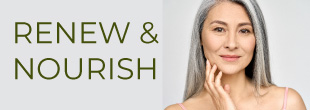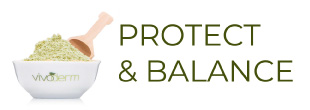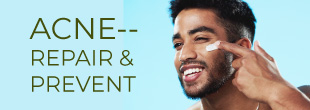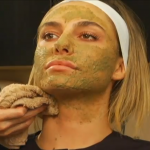
Embrace Spring with a Refreshed Skincare Routine
As we bid adieu to the cold, harsh winter and welcome the gentle warmth of spring, it’s not just our wardrobes that need a seasonal overhaul. Our skin, having braved the winter chills, now faces a new set of challenges with the changing weather. The arrival of spring calls for a refreshed skincare routine that caters to the evolving needs of your skin. Let’s dive into how you can transition your skincare regimen to embrace the vibrant energy of spring.
- Lighten Up on Moisture
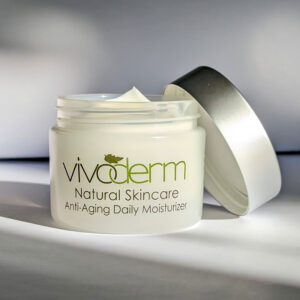
Winter skincare is synonymous with heavy, rich moisturizers designed to combat dryness. However, as the mercury rises, it’s time to switch to lighter formulas. Opt for a lightweight, non-comedogenic moisturizer that hydrates without weighing your skin down. Oil-free moisturizers can be particularly refreshing and are ideal for maintaining balance as temperatures warm. The Vivoderm Anti-Aging Daily Moisturizer is a perfect transition for the warmer weather!
- SPF: Your Non-Negotiable Companion ☀️
The cornerstone of spring skincare is robust sun protection. With days getting longer and the sun shining brighter, shielding your skin from UV rays is crucial. Make sunscreen a non-negotiable part of your morning routine, choosing a product with at least SPF 30. Remember, UVA and UVB protection is essential, even on cloudy days, as harmful rays can penetrate through the clouds.
- Exfoliate with Care
Shedding the dullness of winter skin begins with proper exfoliation. Transitioning into spring, it’s important to slough off dead skin cells to reveal a brighter, more even complexion. Incorporate a gentle exfoliant into your routine, choosing between mechanical exfoliators or chemical exfoliants like AHAs (glycolic acid) and BHAs (salicylic acid). However, moderation is key—over-exfoliating can lead to irritation and sensitivity.
- Antioxidant Power
Spring is the perfect time to bolster your skin’s defense against environmental aggressors. Antioxidants like vitamin C, vitamin E, and ferulic acid not only protect against free radical damage but also brighten the skin and help reduce the appearance of dark spots. Incorporating a serum enriched with antioxidants in the morning can provide a protective barrier against pollutants and enhance your skin’s natural radiance.
- Stay Hydrated Inside and Out
Hydration is a year-round necessity. As we enjoy more outdoor activities, keeping our skin and body hydrated becomes even more important. Continue to drink plenty of water throughout the day and consider using a hydrating serum or essence to keep your skin plump and nourished.
- Tailor to Your Skin’s Needs
Finally, listen to your skin. The transition from winter to spring can vary in its effects on different skin types. Pay attention to how your skin responds to changes in your routine and be ready to adapt. Whether it’s incorporating more hydrating products, reducing exfoliation, or seeking out specific treatments for spring-related skin concerns, customization is key.
Embracing the Season
Spring is a season of renewal and growth, not just for nature but for our skin as well. By adapting your skincare routine to the changing climate, you can ensure that your skin remains healthy, radiant, and ready to enjoy the beauty of spring. Remember, the goal is to support your skin’s natural balance and protect it from seasonal challenges, ensuring a smooth transition into the warmer months ahead.


